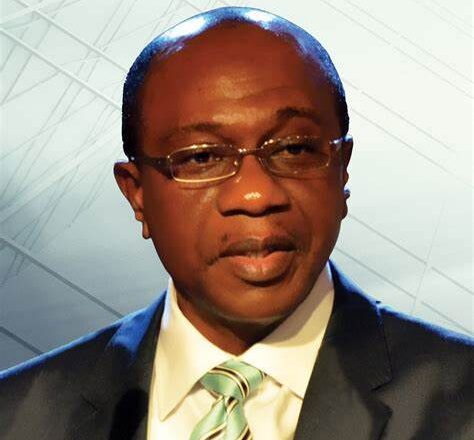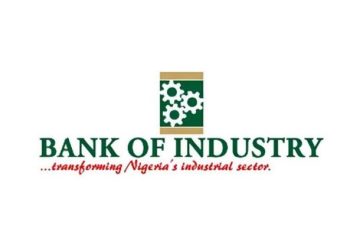Findings show that since June 2014, Nigeria’s inflation rate has increased at least 67 times.
The consumer price index was 8.2% when the suspended CBN Governor, Godwin Emefiele, entered office in June 2014, according to an analysis of the inflation rate statistics that the Central Bank of Nigeria released.
The nation is currently having trouble, though, with an inflation rate of 22.22 percent as of April 2023. In May, the inflation rate increased by 0.03 percentage points to 22.41 percent, the highest level in 17 years.
Thus, while Emefiele was in charge of the top bank’s operations, inflation increased by 14.02 percentage points.
Inflation increased three times between June and December 2014, according to a breakdown of the number of increases.
Nigeria’s inflation rate reached a double-digit level of 11.38 percent in February of that year, and it continued to grow throughout the year, rising 12 times. This caused the inflation rate to worsen in 2016.
The first recession to occur under the suspended CBN boss occurred in 2016.
In 2017, there was an improvement as inflation only increased in July. In the same year, it did, however, report various rates of decline.
Inflation increased four times in 2018—specifically in August, September, November, and December—which nearly prevented the progress from being sustained.
Nigerians had to pay more for their items by 2019, when inflation had increased six times.
In 2020, Nigeria experienced another recession as the COVID-19 outbreak negatively impacted economic activity.
Inflation increased in the same year, rising from 12.13% in January to 15.57% in December.
As inflation increased four times in 2021—exactly in January, February, March, and December—the situation marginally improved.
The improvement was short-lived in 2022, though, as inflation increased 10-fold overall, excluding January and December.
Under the detained CBN boss, inflation had increased 63 times by the end of 2022.
Additionally, results showed that inflation increased in 2023, rising from 21.82 percent in January to 22.22 percent in April.
Despite the Central Bank of Nigeria’s tightening monetary measures to fight inflation, there has been an overall increase.
To reduce the amount of currency in circulation, the apex bank made the decision to continuously raise interest rates last year. They also opted to implement the naira redesign strategy.
Over the course of seven consecutive rate increases, the apex bank raised the MPR from 11.5 percent in early last year to 18.5 percent in May of this year.
Nigeria’s interest rate increased by around 800 basis points between May 2022 and May 2023, a one-year span.
The decision to keep raising the MPR was made to combat inflation, according to CBN Governor Godwin Emefiele.
The governor claimed that relaxing the MPR would defeat the purpose of reducing the accumulated aggregate demand that drove inflation.
The CBN remained adamant that it would keep raising interest rates until inflation fell below 15%, despite the negative impact the move had on the organised private sector.
“For as long as that gap between inflation rate and the MPR is wide, giving a negative interest rate, it discourages investments, savings mobilization (particularly within the domestic economy) and also fast track capital outflows. The reasons for increasing the Monetary Policy Rate before have not gone, so we will keep at it while being mindful of the rebound effect of some of those measures.”
Research also showed that in November 2020, at 14.89%, or roughly 27 months ago, the monthly inflation rate was below 15% for the final time.
According to the characteristics and fiscal assumptions supporting the Nigerian budget for 2023, inflation was estimated to be 17.16% for that year.
The CBN boss who was suspended continued by saying that the rate was having the anticipated effect on credit and that, despite the MPC’s displeasure about the decline in credit, it was necessary to do so in order to lower inflation.
According to him, “Around May 2022, credit was about N1.4tn, but as we speak today, credit is about N600bn. When you raise rate, you are trying to constrain credit.
“We are seeing it happen. And I must confess here that we are not happy that the hike in rate is constraining credit, but we have to do our work because inflation is at the heart of what we are saying we want to deal with.
“Because if you don’t raise rate to constrain credit, what that would mean is that it would create more inflationary pressure and create more problems for us.”
At the last Monetary Policy Committee meeting in May, the suspended CBN Governor, admitted that the MPC saw the continued rise in inflation as still “the biggest challenge confronting macroeconomic stability in Nigeria”.
The MPC cited a number of factors, including high energy costs and difficulties in the supply chain that are out of the CBN’s control, as justifications for the rising inflation rate.
Emefiele argued, however, that the policy rate increases had kept inflation from increasing by approximately 8% over the previous year.
Following the effects of growing prices and climate change, among other things, the World Bank has issued a warning that at least 64 million Nigerians may require emergency food and nutritional assistance.
The lending institution claims that the present rate of inflation is driving many Nigerians into poverty and food insecurity.
The bank also pointed out that, despite the CBN’s efforts to reduce inflation by raising interest rates, covering the fiscal deficit through new methods and means had complicated matters.
The regular increases in interest rates were not having the desired impact, thus the Lagos Chamber of Commerce and Industry recently urged the CBN to look into practical solutions to the nation’s spiralling inflation.
The LCCI stated in a statement: “While the CBN has the overarching mandate of ensuring price stability, we suggest it should not be done in a manner that compromises growth, more especially in the face of high unemployment.
“Inflation chips away at purchasing power leads to inventory stockpiles, undermines growth, and creates a lot of economic uncertainties. Taming it, however, should not be done at the expense of growth and the most vulnerable sectors.”
Segun Kuti-George, the national vice chairman of the Nigerian Association of Small-Scale Industrialists, reportedly said that the country’s inflation rate surge was caused by the naira redesign strategy, which fueled cash scarcity.
The NBS data were also criticised by him, as he pointed out that they were at odds with what was available on the market.
Dr. Muda Yusuf, CEO of the Centre for the Promotion of Private Enterprise, acknowledged that the CBN’s currency devaluations and deficit financing had contributed to the rising inflation.
Nevertheless, he advised the government to cut back on borrowing from the CBN through methods and means advancements, noting that the country’s need for more foreign exchange must be increased.





